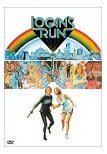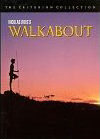|
Ask The Smart Guy
 Dennis Latham is a long-standing and very talented contributor to Far Sector SFFH. After years of being a steadfast and supportive friend, it is no surprise that his talents should bring him further on board.
Dennis Latham is a long-standing and very talented contributor to Far Sector SFFH. After years of being a steadfast and supportive friend, it is no surprise that his talents should bring him further on board.
 Actually, he has been helping in the background to screen incoming fiction to help me find the next story we'll publish. It is always surprising where the many talents of a man like Dennis Latham will bubble up next. I've known him for years as a guy who walked the walk in Vietnam as a combat Marine, and continues to support his fellow veterans in the Indiana region through his outreach programs. Some months back, Dennis began rather whimsically sending a little e-mail humor to a small group of friends. I began to realize, as I started laughing out loud the minute I opened each of these Ask The Smart Guy creations, that we have a fresh and original humorist in our midst. So I asked Dennis to grace our pages with his column, and he has agreed. Dennis recently placed a novella with a print publisher, and we'll hear more about that in the near future. Dennis has contributed several short stories to both Deep Outside SFFH and Far Sector SFFH (i.e., Jumper, Shrieks, and In Briscoe County; plus Psychosis and Floater.
Actually, he has been helping in the background to screen incoming fiction to help me find the next story we'll publish. It is always surprising where the many talents of a man like Dennis Latham will bubble up next. I've known him for years as a guy who walked the walk in Vietnam as a combat Marine, and continues to support his fellow veterans in the Indiana region through his outreach programs. Some months back, Dennis began rather whimsically sending a little e-mail humor to a small group of friends. I began to realize, as I started laughing out loud the minute I opened each of these Ask The Smart Guy creations, that we have a fresh and original humorist in our midst. So I asked Dennis to grace our pages with his column, and he has agreed. Dennis recently placed a novella with a print publisher, and we'll hear more about that in the near future. Dennis has contributed several short stories to both Deep Outside SFFH and Far Sector SFFH (i.e., Jumper, Shrieks, and In Briscoe County; plus Psychosis and Floater.
NOTE: (RENO2022) Looking back in time to events of that decade, there is perhaps no higher tribute than having your work stolen. One night, Dennis emailed me from his home in Guilford, Indiana, to tell me he had learned that his story Jumper had appeared under another person's name in a leading Canadian literary magazine. I had by then seen at least one of my novels stolen, in a familiar scenario. I'll tell that story separately (regarding my SF symphonic novel This Shoal of Space). I'd been down this route before. Luckily in the early days of Web publishing, we had available to us several honest, crusading lawyers who hung around for just this kind of situation. As I recall now in 2022, I contacted the editor of the Canadian literary magazine, who of course initially reacted predictably with annoyance and dismissal. Once I pointed him to Dennis Latham's earlier, already published story at Deep Outside SFFH, and once our lawyer friend sent a heavy-duty warning note in language only lawyers can intonate, the situation changed. The thief was, as usual, a non-author, an artless, dishonest, sociopathic, rather smelly hanger-on who stole the work of honest, talented authors and passed it off as his own; and typically this type of individual is able to snowjob everyone around him into thinking he is the next Edgar Allan Poe (or Allan Poo?). Long story short, Mr. Poo) was disgraced and dropped by his magazine. Dennis was further made whole (I think with a tiny, token monetary compensation, but I can remember for sure this long after the fact).
And it must be said: this is yet another of *many* proofs that the war of greed and mediocrity waged against new publishing ideas (digital, Web, etc) is pure nonsense. Despite having advanced degrees and professional experience, in addition to great talent, authors outside the money of the print cartel and its smaller sibling, the pulp cartel, have long been besmirched as not fit to be published nor to publish. Total nonsense. More on that another day, another place. Bottom line for now, if the print cartel sees our work fit to steal and publish under their aegis, our work must indeed rise at least to the highest levels of their investment (money) game. You just cannot argue with them stealing our work and passing it proudly (shamelessly) off as their own. And, in the instances I've seen where well-meaning Web-haters were fooled, it goes to show that there is no taint or tarnish about a non-cartel published work of literature. Yes, literature.
And in fact, Dennis Latham's Jumper is precisely the masterful short story that first caught our attention at this magazine, and made us want to take Dennis Latham aboard as a treasured author and team member.[JTC]
A Review By JTC. Given the series of falling dominoes (connections) between Dennis Latham and the above tale, I am moved to write about some favorite stories. Those include the 1967 SF novel Logan's Run by William Nolan and George Clayton Johnson (made into a movie and a popular television SF adventure series as well). The luminary stars in those films include the English actress Jenny Agutter, who also graced such movies as Walkabout (name of an aboriginal rite of passage). Funny how one thing leads to another …
Walkabout (1971)
 Well, it started like this. Dennis Latham wrote to inform me that he has had a story accepted for publication in a magazine, whose concurrent issue will highlight fiction by William F. Nolan. Dennis reminded me that Nolan is the author of, among other things, Logan's Run. Here's a FAQ. That took me back (surprised, for I had no idea the original story was that long ago) to a sunny afternoon about 40 years ago at the New Haven Public Library, where I was browsing through the great oak book cases, specifically sf/f/h, and lingered long over several classics including LR. Coincidentally, the names Siodmak and Simak float up in the same memory, all worthy company to each other. I remember enjoying the television series while socked away overseas in the U.S. Army and longing for some escape. I also have seen the classic movie starring Michael York and Jenny Agutter.
Well, it started like this. Dennis Latham wrote to inform me that he has had a story accepted for publication in a magazine, whose concurrent issue will highlight fiction by William F. Nolan. Dennis reminded me that Nolan is the author of, among other things, Logan's Run. Here's a FAQ. That took me back (surprised, for I had no idea the original story was that long ago) to a sunny afternoon about 40 years ago at the New Haven Public Library, where I was browsing through the great oak book cases, specifically sf/f/h, and lingered long over several classics including LR. Coincidentally, the names Siodmak and Simak float up in the same memory, all worthy company to each other. I remember enjoying the television series while socked away overseas in the U.S. Army and longing for some escape. I also have seen the classic movie starring Michael York and Jenny Agutter.
 My searching brought me, ultimately, to a movie that I didn't have time to see back in 1971, Walkabout, which I just saw for the first time and which I am pleased to say has genuine staying power after more than 30 years. It is, in short, a remarkable movie for a number of reasons. It is clearly an artsy flick, truly a genuine art movie. It has a small but wonderful cast, captures a vast terrain with deftness, and spins out enduring themes about the environment, man's relationship to fellow man, and a whole lot else besides. Three young performers make this, in one sense, one of the most remarkable movies ever made. The only significant adult actors are the character who propels the children on their life-and-death journey on foot across the fierce Australian desert/ and some Italian sailors and scientists who bring a cameo of La Dopey Vita to the desert. The three young actors deliver powerful and memorable performances that completely sustain the movie, thanks to Director Nick Roeg's sensitive and deeply reasoned Führung:
My searching brought me, ultimately, to a movie that I didn't have time to see back in 1971, Walkabout, which I just saw for the first time and which I am pleased to say has genuine staying power after more than 30 years. It is, in short, a remarkable movie for a number of reasons. It is clearly an artsy flick, truly a genuine art movie. It has a small but wonderful cast, captures a vast terrain with deftness, and spins out enduring themes about the environment, man's relationship to fellow man, and a whole lot else besides. Three young performers make this, in one sense, one of the most remarkable movies ever made. The only significant adult actors are the character who propels the children on their life-and-death journey on foot across the fierce Australian desert/ and some Italian sailors and scientists who bring a cameo of La Dopey Vita to the desert. The three young actors deliver powerful and memorable performances that completely sustain the movie, thanks to Director Nick Roeg's sensitive and deeply reasoned Führung:
19 year old Jenny Agutter, the long-legged beauty who at around 25 would star in the 1976 classic movie Logan's Run; six year old Luc Roeg (Director Nick Roeg's son), who has gone on to become a star in his own right; and 18 year old aborigine David Gulpilil. Online resources offer more info about the remarkable Australian artist and dancer David Gulpilil, and I invite you to spend a few moments researching all three of the actors and their director.
All three performances are solid and powerful. The characters do not actually have names—another artsy touch pointing to their Everyman quality. Agutter delivers some flossy swimming scenes in which her unpretentious, youthful beauty contrasts with the equally unpretentious and impersonal violence of Gulpilil's character hunting game they need for survival. Contrast this with the unfeeling brutality of white hunters later in the movie, which causes a dramatic reaction by Gulpilil's character. Without giving the plot away, yes, the dramatic reaction just mentioned seems a bit over the top, but in a metaphoric sendup that works. On the topic of what's not perfect, the movie conveys a touchingly simplistic 1960s idealism in which good and evil seem easily and starkly contrasted—a lost world in today's ugly SUV driven terrierism. The symbolism at times hits you on the temple like a sun-cured ham, but we remember our school days and understand that simple compositions on profound themes are best written by those who are still, like White Girl and White Boy, armored in contextually absurd school uniforms.
Walkabout is, for all its great narrative drive, tension, and suspense, a naturementary. White Girl strides across the merciless desert sands in her sensible but glossy heels, and all manner of gulping, snarling lizards yaw after her. Scorpions towmotor back and forth on finely photographed grains of rough sand. Huge snakes right out of Eden glide sinuously over the sleeping children but do not harm them. Some sort of furry marsupial comes up to sniff the sleeping White Boy like a family dog or cat in this paradise, then waddles off to sip primordial water. There are times, as the camera glides through shimmering desert air, and all life is captured in the unity of its perambulations—from Black Boy's dancing buttocks (in White Girl's hypnotized gaze) to White Girl's almost Peruvian silhouette in schoolgirl derby hat, from a herd of camels swaggering across the dunes (yes, for real) to the mambo-like waddle of a porquipine—when lessons of the then-contemporary masters of film are easily discerned. The imitation is high-order and delights in the skill of its execution. We recall the somnambulent Romans in Fellini's 1969 Satyricon, amid that movie's comparable arid, sandy, surreal landscapes. We recall the fussy leaves in Anonioni's 1966 Blowup. But those are distant and academic nutations. Equally studied and deliberate (to hear Roeg himself tell it in a 1990s interview) are scenes like this: A beautiful blue swimming pool, rectangular with rounded corners, set directly next to the ocean itself in the city harbor—one of the constant reminders of the absurdity and artificiality of modern life. In fact, while the father stands on the balcony of a whitewashed apartment block overlooking that balmy and wonderful scene, in which his son and daughter swim happily (clothed) in the pool, one has a remarkable sensation that the scene is borrowed from Edward Hopper's studies in alienation.
What it comes down to in the end is that the adorable and robust little boy, his athletically and freshly beautiful sister on the verge of womanhood and a naturally nurturing mother figure, along with the sensitive and extremely talented aborigine youth, deliver an unforgettable triangle of personal relationships in dramatic form. Not to be missed.
Obituary: Pat York Sadly, our author Pat York has died. Among her many achievements as a talented author, she was nominated for a Nebula Award in 2000 for her short story You Wandered Off Like a Foolish Child Two Break Your Heart and Mine. Her sudden, untimely passing was a tragic event. It was a shock, to learn from the pages of Locus Online that Nebula Award Nominee Pat York died in an automobile accident. Here is the SFWA obituary. Pat contributed her delightful short story Wishes to Deep Outside SFFH in 2002. She and I had a warm, personable correspondence, and her passing saddens many. She will be missed, and it will now forever be a question what more she might have achieved had her life and career not been cut short by a tragic car accident. She was one of many award winning authors we have published in our magazine.
TOP
NOTICES
Editor's Note: We welcome books and announcements. Please give us at last 3 months lead time so we can present your announcement in a timely fashion. We take no responsibility for the content, format, contributors' editorial opinions, or other characteristics of this information which we publish in community interest.
ComiCon International 2005 will be held July 14-17 in San Diego, California. Click for details.
TOP
Books Received
Editor's Note: We welcome books and announcements. Please give us at last 3 months lead time so we can present your announcement in a timely fashion. We take no responsibility for the content, format, contributors' editorial opinions, or other characteristics of this information which we publish in community interest.
|